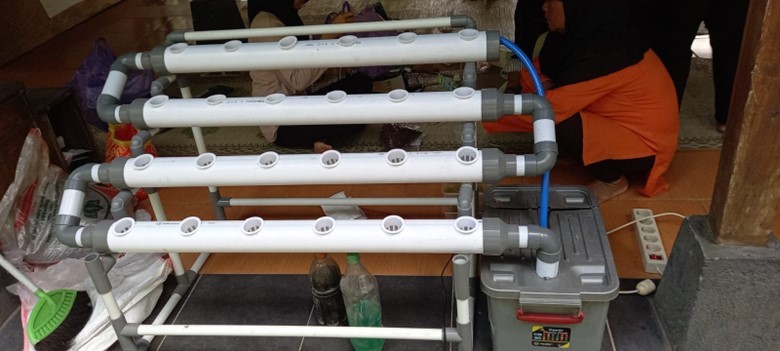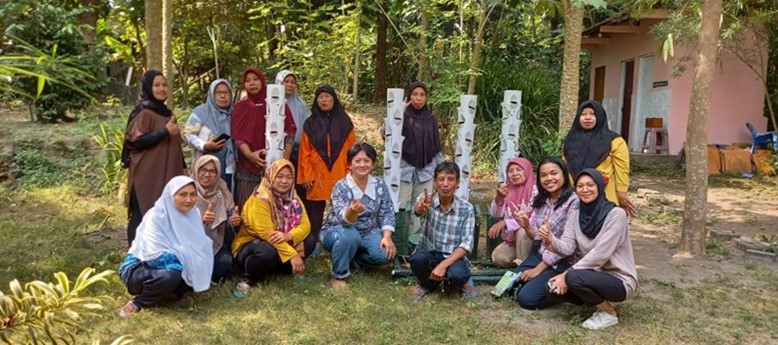This community service program is one of the Independent Learning Community service programs(MBKM) for the Faculty of Biology UGM conducted by Prof. Dr. Kumala Dewi MSc.St. along with two students, Alfina Damayanti (2020) and Estherina Claudya Manurung (2020) have been running since April 2023. Sunday, 11 June 2023 was conducted socialization of verticulture and hydroponic techniques for the PKK group RT 01 Dusun Blotan, Wedomartani, Sleman, from 09:00 to 11:00 WIB in Pendopo Blotan and was attended by 15 participants.
The material was presented by Prof. Dr. Kumala Dewi MSc.St. Verticulture is a plant cultivation technique where plants are grown vertically or in gradual stages. This method aims to optimize the use of narrow land space. The vegetables chosen for vertical cultivation are economically valuable, have short-lifespan, and have shallow roots. Some common vegetables are lettuce, water spinach (kangkung), spinach, chinese cabbage (pokcoy) and mustard green (caisim).
Hydroponic, on the other hand, is a method of growing vegetables without using soils, where plants are planted in a nutrient-rich solution. Hydroponic systems utilize water efficiently and reduce its consumption compared to traditional farming methods. The benefits of Hydroponic include faster plant growth, better nutritional control, and a reduced risk of disease. The nutrient-rich solution consists of ComponenT A and component B. Component A contains macro nutrients such as nitrogen (N), phosphorus (P), potassium (K), as well as some microelements needed by plants. These macro nutrients are usually found in the form of inorganic salts that are water-soluble, such as nitrates (NO3-), phosphate (PO4-), and potassium nitrate (KNO3). The B-component contains additional nutrients such as calcium (Ca), magnesium (Mg), as well as microelements that are also important for plants. In hydroponic technique it is important to monitor and manage pH and EC (electric conductivity) of nutrient solutions on a regular basis. In addition, the pH of the solution should be kept to stay within the appropriate range for nutrient absorption by the plant, usually around 5.5 to 6.5. During the practice of verticulture and hydroponics, the program received assistance from Mr. Edi from SG. Agroniaga, Tajem and Yogyakarta. Furthermore, the PKK members,Rt 01 were provided with a planting bag system for verticulture as well as vegetable seeds for practice at home.



